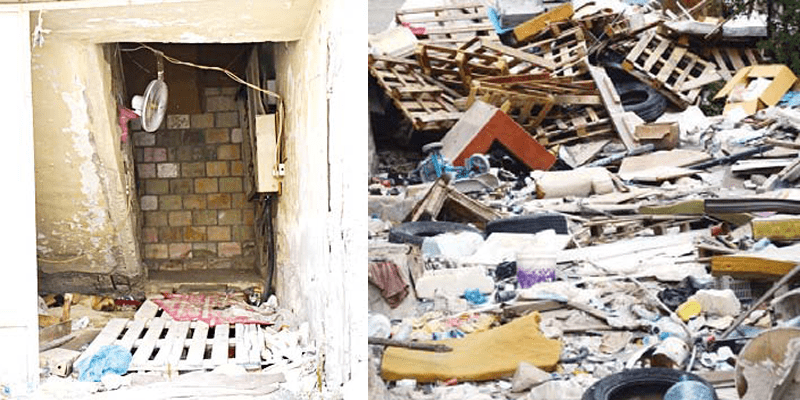10/07/2024
10/07/2024
KUWAIT CITY, July 10: Despite municipal claims that the recent viral video depicting scattered garbage in Jleeb Al-Shuyoukh was outdated, a recent tour by Al-Seyassah revealed ongoing issues. Residents confirmed that the area remains overwhelmed by prostitution, waste, and drugs, with alcohol also being sold openly on the streets in the absence of proper oversight.
During an investigation by Al-Seyassah newspaper, residents highlighted the severe accumulation of garbage, creating hills of waste. They emphasized that garbage collection is sporadic, leading to prolonged exposure to filth and resulting in numerous residents suffering from respiratory diseases. The overflowing sewage and unpleasant odors further exacerbate the living conditions, prompting urgent calls for intervention.

Mahrez Fattoun, a resident described the area as being engulfed by dirt and scrap, noting that his roommate developed a respiratory illness due to the unsanitary conditions. Muhammad Bilal added that the problem extends beyond garbage, citing rampant street chaos and numerous brothel apartments, which have become havens for domestic workers fleeing their employers. Entry fees for these apartments range from 3 to 5 dinars for half an hour, and Viagra pills are sold for 3 dinars each, leading to frequent shortages in local pharmacies. Abdul Momen Muhammad downplayed concerns about garbage, stressing that the overflowing sewage is a constant issue. He lamented that authorities often ignore repair requests, resulting in worsening conditions. The area is littered with broken wood, abandoned beds, and various scrap items, making Jleeb Al-Shuyoukh synonymous with filth.
Sewage swamps
Real estate office owner Bu Hamad confirmed that Jleeb Al- Shuyoukh is plagued by sewage swamps and massive garbage piles. He questioned how over a quarter of a million people could live in such inhumane conditions, criticizing the Ministry of Public Works and the municipality for their lack of action. Despite media coverage of the area’s dire state, chaos and neglect persist. Mohammad Salah pointed out the high density of single workers in the area, many of whom are in violation of residency laws.
The sale of alcohol and drugs is rampant, and some apartments are used for abortions amidst the growing prostitution. Despite security campaigns and raids, workers continue to find new ways to operate illicit businesses. Real estate guards are often bribed to overlook these activities, and garbage removal remains inconsistent, with cleaning workers prioritizing salvageable items over proper waste disposal. Zidane Sayed described Jleeb Al-Shuyoukh as a refuge for criminals, including drug dealers, liquor manufacturers, and residency violators.

Stray dogs and loitering single workers add to the area’s troubles. He urged officials to witness the environmental disasters firsthand, emphasizing the urgent need for intervention. Ibrahim Awad, a long-time resident, reported a rise in epidemics and filth-related diseases, calling for regulatory action to prevent deadly illnesses. A Ministry of Health consultant, preferring anonymity, underscored the health risks posed by constant exposure to filth, which fosters the spread of hepatitis, pneumonia, and chronic diarrhea.

Overflowing garbage and sewage contribute to bacterial growth, increasing the prevalence of viruses and food poisoning. A source informed Al-Seyassah that the Municipal Council plans to form a committee to address cleanliness and street repairs. Minister of Municipality Noura Al-Mashaan has recommended reforms across Kuwait, with a particular focus on Jleeb Al-Shuyoukh. The area’s population has decreased significantly, from 324,878 in mid-2019 to 268,601 by the end of 2023, reflecting the deteriorating living conditions.
Proposed Solutions:
■ Consistent Garbage and Waste Removal
■ Street Cleaning and Repair
■ Crackdown on Brothels and Drug Trafficking
■ Sewage System Repairs Immediate action is essential to restore livability and ensure the health and safety of Jleeb Al-Shuyoukh’s residents.
By Najeh Bilal
Al-Seyassah/Arab Times Staff


